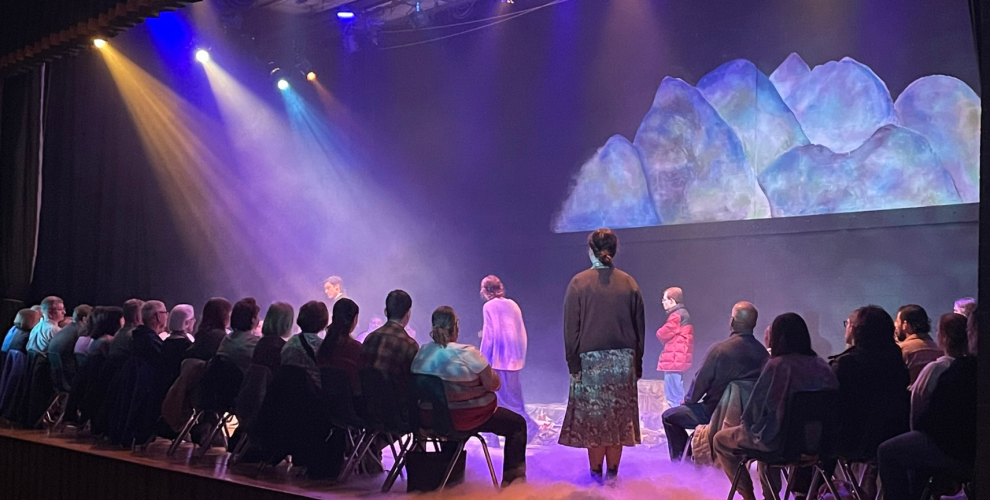The Transformative Power of Theater: A Reflection on The Women of Lockerbie at Brick Memorial High School
A late-night writing exercise by Mr. J. Stefanelli
As a veteran of high school theater, having served as the head of the drama club at Brick Memorial High School for five impactful years and directing ten memorable plays, my journey in the world of theater has been deeply enriching and transformative. Though I have not directed high school theater since 2013, my passion for the stage and its profound influence on both students and audiences remains undiminished.
Before I delve into my reflections, I must extend a sincere apology to the readers. Typically reserved for press releases about the wonderful things happening at Brick Memorial, I am admittedly using this platform for a different, albeit important, purpose. My intention is to share my thoughts after witnessing the final performance of The Women of Lockerbie, presented by The Mustang Players, and to highlight the enduring impact of theater on our lives.
As I sat in the audience for the final performance, I found myself reflecting on the profound impact of theater on both students and audiences alike. Even now, as I teach an acting class at the high school, I am reminded of the enduring relevance and significance of theater in our lives.
The production, directed by the current drama club advisor, Ms. Jessica O’Brien, tells of the people affected by the tragic events surrounding the bombing of Pan Am Flight 103 in 1988, which claimed the lives of over 200 individuals. The students involved in this production, whether performing on stage, designing sets, or managing technical aspects, gained invaluable insights that extend far beyond the confines of a classroom. They learned about empathy, about the world beyond our immediate surroundings, and about the power of storytelling to transcend time and place.
This experience has reinforced my belief in the importance of exposing students to theater, not just as performers, but as engaged and empathetic members of society. While not every student may choose to pursue a career in the arts, exposure to theater can cultivate a deeper understanding of human emotions, societal issues, and the complexities of the human experience. In an era dominated by digital distractions and fleeting trends, it is crucial to preserve and promote the enduring value of theater in shaping well-rounded individuals.
As I conclude this reflection, I am reminded of the declining exposure to theater among younger generations compared to previous eras. While technological advancements have undoubtedly enriched our lives in many ways, they have also led to a disconnect from traditional forms of art and culture. The decline in recognition of iconic plays like The Odd Couple or My Fair Lady, and the fading familiarity with classics like The Wizard of Oz, is a poignant reminder of the need to reignite a passion for theater in today’s youth.
It is incumbent upon parents, teachers, and society as a whole to make exposing children to theater a priority in our lives. The benefits extend far beyond entertainment, encompassing valuable life lessons, empathy, and a broader perspective on the world. Whether through school productions, community theater, or attending professional performances, the impact of theater on young minds is immeasurable.
In essence, theater has the power to transcend time, to bridge generations, and to spark conversations that resonate deeply with the human experience. It is a cultural heritage that must be preserved and celebrated, not just for its entertainment value, but for its profound ability to educate, inspire, and unite us as a community.










